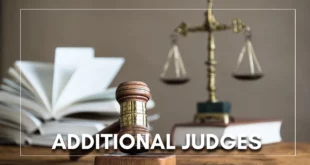- The Supreme Court on Monday observed that all religious conversions cannot be presumed by a State to be illegal while agreeing to hear a Madhya Pradesh government appeal against a High Court decision freezing a mandatory provision requiring a person who desires to convert to another faith to give 60 days’ prior intimation to the District Magistrate.
- A Bench led by Justice M.R. Shah issued notice but refused to order an interim stay of the High Court order even as Solicitor-General Tushar Mehta, for Madhya Pradesh, argued that “conversion in the country is based on marriage”
- The provision under question is Section 10 of the Madhya Pradesh (Freedom of Religion) Act, 2021. Section 10(1) and (2) of the Act mandates that a person who desires to convert and a priest/person who intends to organise a conversion, respectively, should give a two-month prior declaration to the District Magistrate that the proposed change of religious faith is not motivated by force, undue influence, coercion or allurement.
- Mehta said conversions largely happened in the country by marrying a person of another faith. The provision did not ban inter-faith marriage but only acted as a safeguard against forcible or illegal conversion.
- He contended that Section 10 of the 2021 Act was in parimateria [on the same subject matter] with Section 5 of the Madhya Pradesh Dharma SwatantryaAdhiniyam of 1968, which was upheld by a Constitution Bench in a judgment in Rev. Stainislaus Vs. State of Madhya Pradesh in 1977.
- Mehta submitted that the 1977 verdict had held that the word “propagate” in Article 25 of the Constitution did not give “the right to convert another person to one’s own religion, but to transmit or spread one’s religion by an exposition of its tenets”.
- The Constitution Bench had held there was “no fundamental right to convert another person to one’s own religion”. Freedom of religion was not guaranteed in respect of one religion only, but covered all religions alike.
- He urged the court to at least restore the implementation of Section 10 of the 2021 Act to the extent that the intimation to District Magistrates may continue.
- He said the High Court had gravely erred in not considering the larger public interest involved against the conduct of illegal religious conversions.
- “But not all conversions are illegal…,” Justice Shah remarked orally. The Bench said it would examine the petition and the question of granting interim relief in the next hearing on February 7.
SOURCE: THE HINDU, THE ECONOMIC TIMES, PIB
 Chinmaya IAS Academy – Current Affairs Chinmaya IAS Academy – Current Affairs
Chinmaya IAS Academy – Current Affairs Chinmaya IAS Academy – Current Affairs



